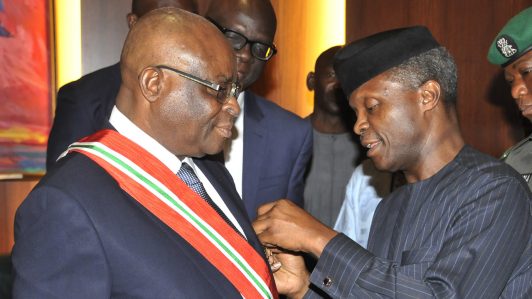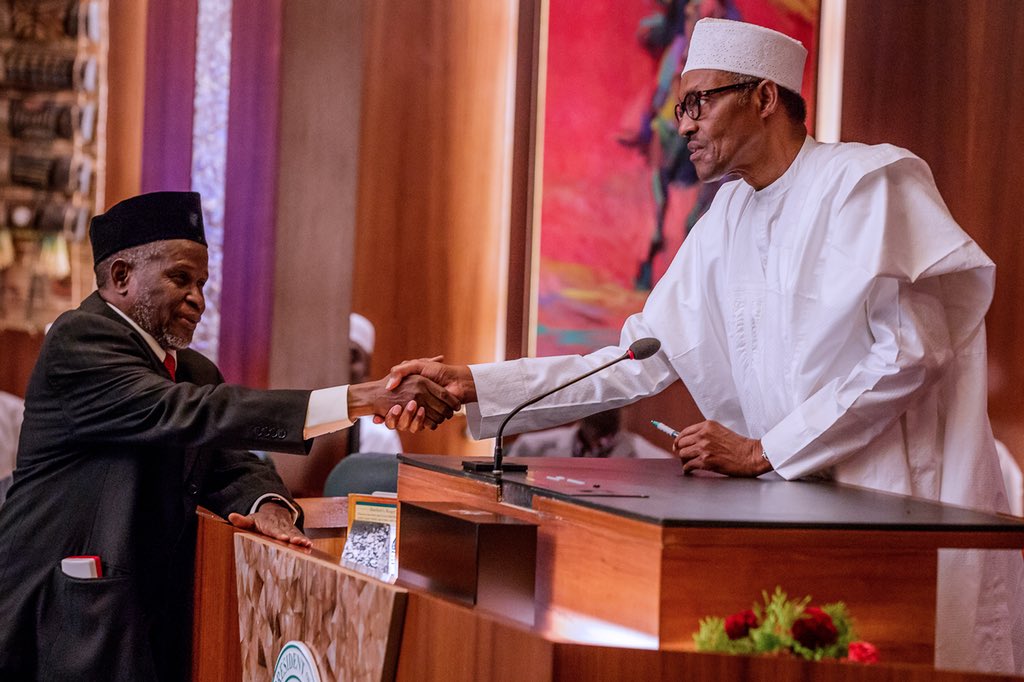The National Judicial Council says it has reached decisions on the petitions written against the suspended Chief Justice of Nigeria, Walter Onnoghen, and the justice acting in his stead, Tanko Muhammad.

The decisions have been communicated to President Muhammadu Buhari for action, the council said Wednesday.

Mr Onnoghen is accused by the Code of Conduct Bureau of not declaring all his assets as a public official, and is standing trial at the Code of Conduct Tribunal for the alleged offence.
Separately, the Economic and Financial Crimes Commission accuses Mr Onnoghen of receiving bribes in money and gifts from lawyers, and receiving illicit payments from public funds.
The embattled CJN has denied all charges. In a written submission to the NJC, published by PREMIUM TIMES Wednesday, Mr Onnoghen said the allegations were baseless, and accused the EFCC of ignorance, and attempting to tarnish his image.
The NJC also received petitions against Mr Muhammad who is accused of allowing himself to be used as an acting CJN after the controversial suspension of Mr Onnoghen by President Buhari in January.
The suspension, only the second in the history of the nation’s judiciary, was widely criticised as unconstitutional as CJN can only be removed with the approval of the Senate.
The NJC reconvened Wednesday in an emergency meeting to consider the report of a five-member committee constituted to investigate the allegations.
A spokesperson for the council, Soji Oye, said the NJC decided that the allegations relating to assets declaration that were levelled against Mr. Onnoghen were “subjudice” and therefore abstained from considering them.

He said the council “reached a decision on the petitions written by Economic and Financial Crime
Mr Oye said the council also resolved that, by the nature of the decision reached, it would be inappropriate to publicise it before conveying it to Mr Buhari.








